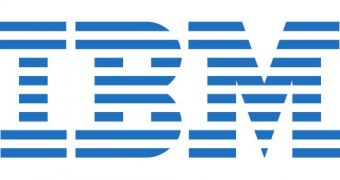We already know that IBM, although it didn't get the top position in the Top500 list this time around, did hold the number-one position with its Roadrunner for quite a while. Additionally, the company got the top position in the Green500 list (really, 18 out of the top 20 were IBM stations). Based on these facts, one could easily say that IBM is the main power player in the field of supercomputing. This impression was probably enforced for the people of Rhode Island when IBM built a multi-million-dollar supercomputer at the Brown's Center for Computation and Visualization.
The system is aimed to address a variety of issues, which include, but are not limited to, finding cures for diseases and climate-change analyses, although the exact use of the machine is still to be decided through a series of symposiums, where IBM and scientific specialists will discuss how the supercomputer would best serve the state of Rhode Island.
"Combined, the supercomputer and the symposia allow us to begin to tackle our state's most sobering challenges, thus allowing for economic growth and stability through productivity, innovation and competitiveness," Clyde Briant, vice president for research at Brown, said in a statement.
As more specific details are concerned, the IBM-powered supercomputer can hold 4.5TB of memory (about 70 times more than previous installations at Brown), 390TB of storage capacity, uses six times less energy than Brown's previous machines and operates at a peak performance of over 14 TFLOPS.
This feat is achieved thanks to the 1,440 microprocessors grouped in three IBM iDataPlex systems (about as large as six refrigerators put together). The 390TB of storage are possible through the use of the IBM Cluster 1350 and multiple storage systems running the General Parallel File System.
"This new system will help scientists make our world smarter, through the ability to address problems that are orders of magnitude larger than what they could address just a few short years ago—from mapping the human genome to helping figure out how to cut down on carbon emissions to helping ensure our waters and food are safe and sustainable," Nick Bowen, vice president of technology at IBM, added in a statement.
IBM has been working on systems aimed at solving global issues for quite a while, even being awarded the National Medal of Technology and Innovation by the President.

 14 DAY TRIAL //
14 DAY TRIAL //